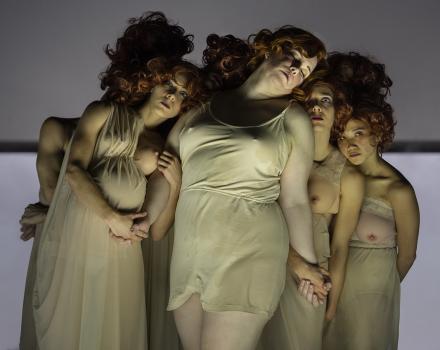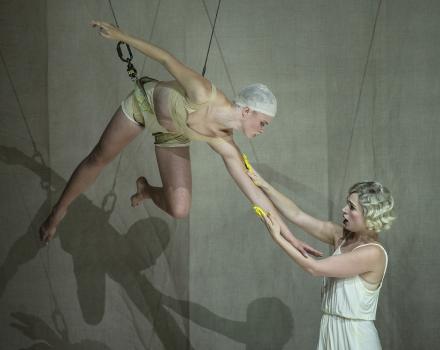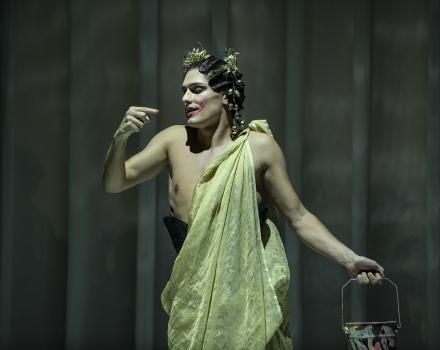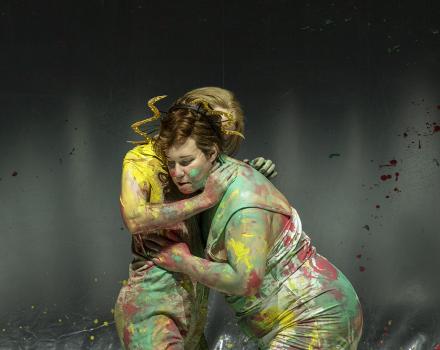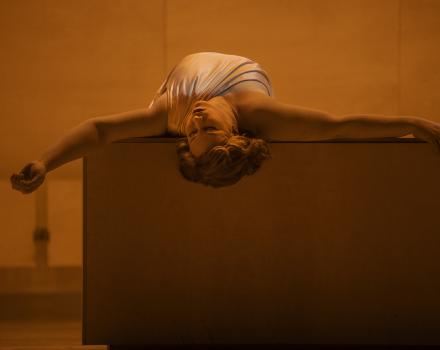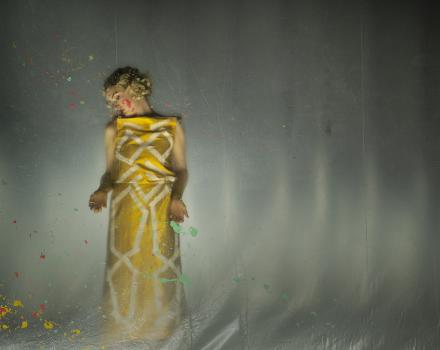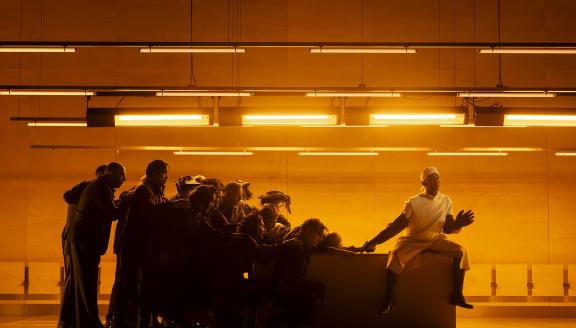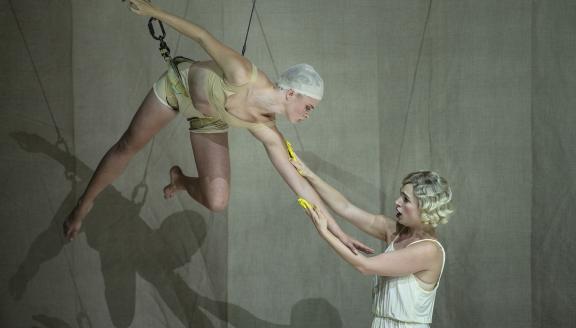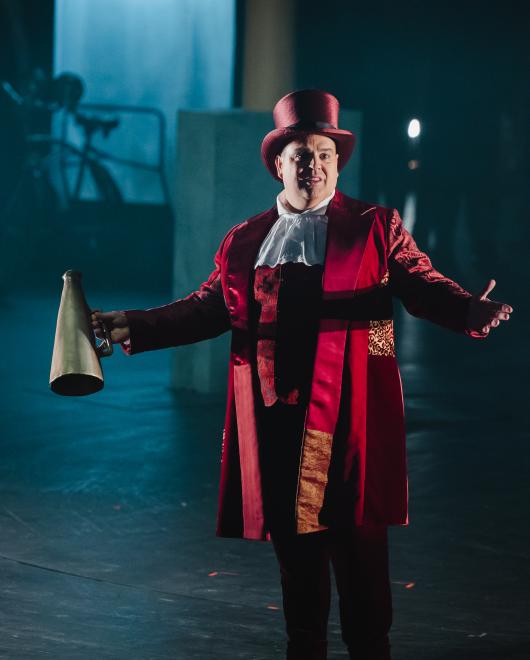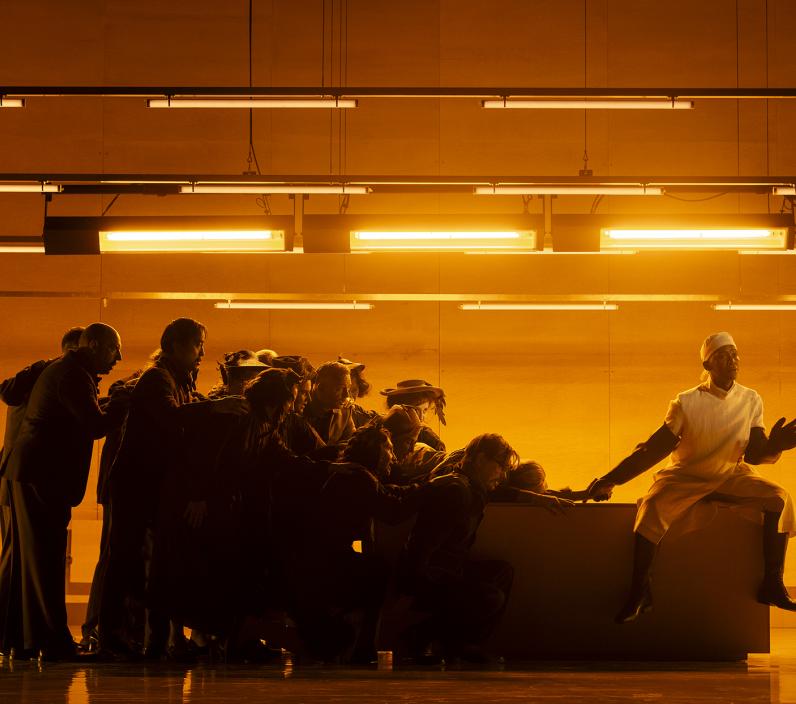
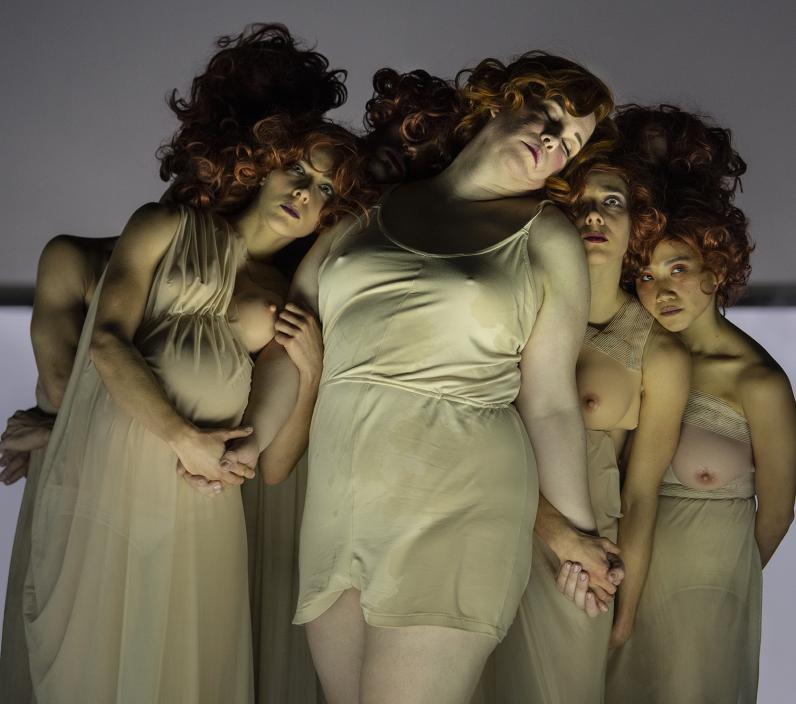
Lili Elbe

The painter Lili Elbe was the first person to have gender confirmation surgery in the 1930s. The homonymous opera is a glimpse into the life of Lili Elbe and her wife Gerda Wegener (also a famous painter) through Lili’s transition at a time when such surgery was still completely uncharted territory.
American composer and Grammy winner Tobias Picker and librettist Aryeh Lev Stollman have written the world's first major opera for and about a person with a transgender background. Commissioned by Konzert und Theater St. Gallen, Lili Elbe, in the tradition of great works of the operatic repertoire, is the story of a love overcoming all obstacles. During her lifetime (1882–1931), Lili Elbe was an internationally known personality. The opera is based on historical sources including Lili Elbe's own writings, unlike the film The Danish Girl (2015) which is based on the novel of the same name. The opera’s title role is played by the celebrated heroic baritone Lucia Lucas - recently seen at Metropolitan Opera New York, Lyric Opera of Chicago and English National Opera - who also acted as dramatic advisor to the authors. Staged by Krystian Lada, the creative team includes conductor Modestas Pitrenas and choreographer Frank Fannar Pedersen. St. Gallen dance company has a central role in this world premiere.
Cast
Lili Elbe | Lucia Lucas |
|---|---|
Gerda Wegener | Sylvia D’Eramo |
Anna Larsen Bjørner / Mother Wegener / Young Woman | Mack Wolz |
Hélène Allatini | Jennifer Panara |
Claude Lejeune | Brian Michael Moore |
Danish Countess / Dagmar / Matron | Théo Imart |
Marius Wegener | Sam Taskinen |
Christian X / Art Critic / Major Fernando Porta | Kristján Jóhannesson |
Eric Allatini | David Maze |
Professor Warnekros | Msimelelo Mbali |
Young Lili | Elias Podolski |
Dagmar‘s children | Aria Pecaj Gustav Seyfert |
Orchestra | St. Gallen Symphonic Orchestra Metanoia Quartet |
Chorus | Theater St. Gallen Symphony Chorus |
Dancers | St. Gallen Dance Company |
| ... | |
Music | Tobias Picker |
|---|---|
Text | Aryeh Lev Stollman |
Conductor | Modestas Pitrenas |
Director / Sets / Video | Krystian Lada |
Choreography | Frank Fannar Pedersen |
Set collaborator | Łukasz Misztal |
Costume | Bente Rolandsdotter |
Lighting | Aleksandr Prowaliński |
Dramaturg (authors) | Lucia Lucas |
Dramaturg (production) | Caroline Damaschke |
Chorus Master | Franz Obermair |
Assistant Director | Marcel Orłowski Fleur Snow |
| ... | |
VIDEOS
PODCAST
For many artists there are barriers that go much deeper than the gender binary, but how can we ensure people of every gender have real access and are genuinely welcomed in the opera world? Trailblazing American baritone Lucia Lucas reveals the highs and lows of inhabiting a role close to her heart; Lili Elbe at the Theater St. Gallen, about the eponymous painter who was the first person to have gender confirmation surgery in the 1930s. Meanwhile, Spanish director, designer and visual artist Marta Pazos explores the world of intersexuality through her production of Alexina B at the Gran Teatre del Liceu In Barcelona; she shares how she brought the story of Herculine Barbin vividly to life.
Story
ACT I
Copenhagen, November 1925
At this time Lili Elbe presents as a man and lives under the name Einar Wegener. Lili is married to Gerda Wegener, both work as artists. The couple attends a play which tells a modern version of the story of Orpheus and Eurydice. Their friend Anna Larsen Bjørner stars as Orpheus. The next day Anna is supposed to model for Gerda but cancels last minute. Gerda asks Lili to step in, so she can finish the painting on time. Wearing a dress and imitating Annas pose, Lili finally feels like herself and asks Gerda to call her Lili from now on. A few days later Lili, for the first time, presents herself as a woman at Gerda’s art exhibition. Gerda and Anna consider this to be a joke. Lili explains to Gerda that she only wants to live as Lili from now on, a wish which unsettles Gerda. They decide to move to Paris. Lili hopes for more freedom to live her true self and Gerda hopes for more success with her art.
Paris, a few weeks later
Hélène and Eric Allatini, friends of the Wegeners, visit the couple in their new flat in Paris. They admire Gerda's latest pieces for which Lili modelled. They desperately want to meet Gerda’s muse. Against Gerda’s objections, Lili discloses that she is the woman in the paintings. After some hesitation, the Allatinis are excited to meet Lili and want to introduce her to society. Lili visits the ball of a Danish Countess and meets perfumer Claude LeJeune, who flirts with her, while Gerda spends time with Major Fernando Porta. After a romantic date with Claude, Lili has to hurry home to meet her siblings who are visiting. Lili's sister Dagmar cannot accept her. Their brother Marius wants Lili to meet Professor Warnekros, whom he thinks he might be able to help Lili with gender affirming surgery. Lili cannot believe this to be true and sets herself an ultimatum. Should the hope for a body, in which she is happy, prove false, she will end her life in one year.
ACT II
Dresden-Copenhagen-Vejle-Paris-Dresden, during the following years
Professor Warnekro’s successfully operates on Lili at the Women’s Clinic in Dresden. This allows Lili to ask the Danish King Christian X to acknowledge her identity and annul the marriage to Gerda, as two women were not allowed to be married at this time. The King grants both wishes. Together with Marius, Lili visits their mother. She only recognises her daughter when Dagmar tells her who Lili is and cannot accept her. Back in Paris, Gerda and Fernando Porta get married, but Gerda regrets not being able to marry Lili all over again. Claude and Lili get engaged but Lili wants to wait to get married as she would like to have children. Professor Warnekros tries to find a solution for Lili’s wish to be able to bear children and plans to attempt a uterus transplant. A young patient in the clinic is chosen as a donor. Lili survives the risky operation, but she is weak and tired. She is not afraid of death, as she would die happily. In a world between reality and imagination, Lili and Gerda meet one last time.
Insights
Four questions for Tobias Picker
How did you come to adapt the story of Lili Elbe as an opera?
Six years ago, the first time I worked with Lucia Lucas I was artistic director of Tulsa (Oklahoma) Opera. I hired Lucia for the title role in Don Giovanni because I had fallen in love with her highly individual artistry and envisioned her someday appearing in a new opera based on Lili Elbe's life. When I later asked if she’d do it, she said: "Yes! That’s my story!” For my librettist, Aryeh Lev Stollman and myself Lucia was an indispensable dramaturg. As a person of transgender experience, she was always there to answer our questions about things she has in common with Lili and to explain the difficulties Lili faced trailblazing, alone, a hundred years ago.
What can you tell us about your musical language in general and how it works in Lili Elbe?
My compositional identity at its core, is an outcome of my German Jewish heritage.
Its melody-driven architecture has roots from ancient Jewish liturgical music through Arnold Schoenberg, Erich Korngold, Kurt Weil, Aaron Copland, and Leonard Bernstein. I was born Jewish, gay, and with a challenging neurological condition, Tourette’s syndrome. I grew up in the USA at a time when each of those things made me feel very alone. My empathy toward others, such as people of transgender experience, those society shuts out, or is reluctant to let in, is thus entirely logical.
As your opera focuses on the last years of Lili Elbe’s life in the 1920’s, did any of the music of that period find its way into a meeting with your own?
It was important to establish that Lili and Gerda and their friends moved in modern artistic circles, so I wanted to connect with the avant-garde music of their day. For the Orpheus and Eurydice scene I was inspired by a 1925 composition of Anton Webern and Schoenberg’s use of sprechstimme. The Danish Countess’ ball music (Act 1, Scene 6) is an expansion of a fox trot I composed for Fantastic Mr. Fox twenty-five years ago. The wedding scene (Act 2, Scene 4) takes place at the legendary Parisian literary café, Les Deux Magots. Here I reference the tone of French cabaret music of the 1920’s. Lili Elbe is through-composed with recontextualized stylistic building blocks intended to spotlight Lili’s time.
Do you give instruments a special meaning in your score?
I am a pianist and played violin, viola, and cello. I do not write recitative. Arias and set pieces are connected by arioso. Every instrument in the orchestra is its own character and melodically interchangeable with the characters on stage forming a continuous counterpoint derived from arias and leitmotifs -always telling and commenting on the story. I love singers because they are living, breathing musical instruments themselves capable of love and loss, sadness, and ecstasy – all which life gives and takes away. Unlike the instruments of the orchestra, but like us, they are born, they live, and they die.
Gallery
